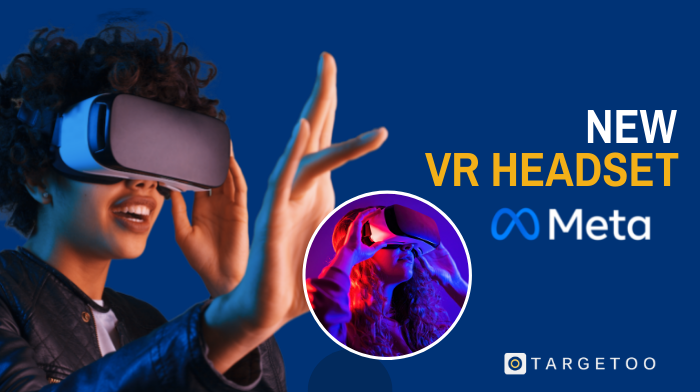“Updated privacy policies from Meta and executive interviews make clear how the company plans to profit from the metaverse.”
The $1,800 Meta Quest Pro, the newest virtual reality headset from Meta, was unveiled this week. With this headset, Meta is particularly hoping to persuade more businesses to use the metaverse, a more realistic online setting where workers can, among other things, have meetings. However, it also looks like Meta (owner of Facebook, Instagram, and WhatsApp) has modified its privacy rules. The new conditions make it obvious how the tech juggernaut plans to eventually make money by showing tailored advertisements to VR consumers.
The headset monitors your face and eyes
According to tech website Gizmodo and others, the privacy terms now include a section titled "Eye Tracking Privacy Notice." According to this sentence, the Quest Pro can send recorded eye movements to Meta to enhance the Meta Quest and track your face and eye movements using cameras. Gizmodo is aware of abstract language that typically refers to personalized ads. The confirmation comes from Meta's chief executive Nick Clegg (head of global affairs), who claims in an interview with The Financial Times that eye movement tracking is how Meta determines whether VR users are interested in an advertisement. An ad is seen only through the VR glasses, to be exact. Such an ad is personalized based on a variety of factors.
User reaction
Soon, Meta will be able to record a user's reactions to a customized advertisement that appears in their field of vision because a Meta-VR headset uses cameras to record the user's eye movements and face. Is the user blinking frequently? Does he turn his head? He either grins or flinches. This data will soon be available for use by Meta in the metaverse for advertising.
Horizon Worlds is the name of the metaverse environment that Meta uses, and it is currently ad-free. However, some creators might offer users digital goods for sale. According to Gizmodo, in the future, if a user spends a little more time on a digital product, the headset may present them with a unique coupon code either right away or later. Perhaps we're closer to such a system than we realize. For instance, Meta submitted a patent application in January for a system that "adapts media material" based on the facial expression of a VR user.

